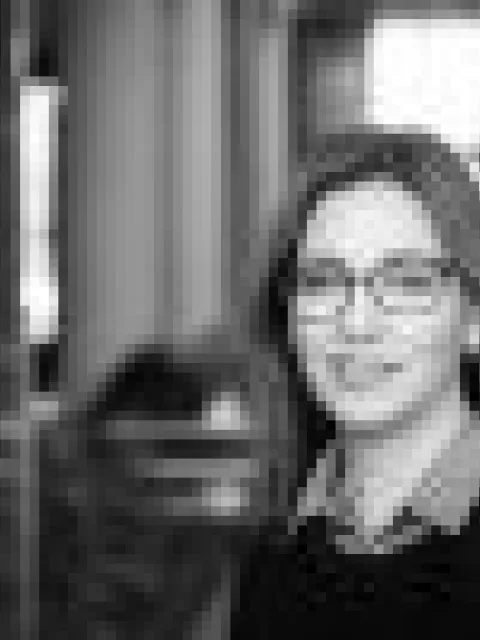

- Are you a qualified teacher?
- Do you have at least two years of work experience?
- Do you want to improve your leadership skills?
This is a short programme designed to enhance leadership skills within the Icelandic education system.
Schools are considered as learning communities and places of professional development. Emphasis is placed on the leadership role of school administrators and the skills required to lead a successful and ambitious school in fast-changing times that demand continuous review of goals and practices.
Programme structure
The programme is 30 ECTS and is organised as one year of part-time study alongside employment.
The programme is made up of:
- Mandatory courses, 25 ECTS
- Restricted electives, 5 ECTS
Organisation of teaching
Teaching and exams are in Icelandic.
All courses are taught through distance learning with face-to-face blocks, although exact arrangements may vary from course to course.
Main objectives
Students should acquire knowledge and understanding of the nature of schools and other educational institutions and improve their leadership skills.
Other
Credits from the programme may be transferred to:
In general, admission to a programme at the Master's level requires the applicant to have completed an undergraduate degree with a first-class grade (7.25). In addition, a teaching license and at least two years of work experience after completing a teaching qualification are required.
30 ECTS must be completed
- CV
- Certified copies of diplomas and transcripts
- Letter of motivation
- License
Further information on supporting documents can be found here
Programme structure
Check below to see how the programme is structured.
This programme does not offer specialisations.
- First year
- Fall
- Sustainability education and leadership
- Not taught this semesterEducation and human resource management
- Development in educational institutions
- Educational management and leadership
- Spring 1
- Leadership in schools and education – field experience
Sustainability education and leadership (SFG003F)
The purpose of this course is to provide participants with opportunities to work with institutional and systems approaches in working with sustainability and sustainability education with regards to institution and/or systems. Classes are online and built on informed debate and active participation (80% attendance). Few written major assignments will be expected together with student participation.
To pass the course students need to get minimum grade 5,0 for each assignment and fulfil obligatory attendance and participation in classes. Further information and instructions will be on Canvas (the learning environment).
Examples of issues to be dealt with:
- Education for sustainability in formal and informal settings (e.g. in workplaces)
- Leadership for sustainability (e.g. whole school or leisure activity change)
- Relations between science and sustainability (e.g. tactic/principle)
- Wicked problems
- Rural development and sustainability
- Creating shared values (including corporate social responsibility)
- Curriculum change
Education and human resource management (STM033F)
Participants will acquire knowledge and competencies in the field of human resource management and be able to apply their knowledge in schoolwork or within other educational fields. The development of human resource management will be discussed, and emphasis will be placed on the latest theories on human resource management. The main topics of human resource management will be presented with an emphasis on participants understanding the main challenges and importance of human resource management for both theoretical and practical purposes.
The course is organized in sessions, real-time presence online and on-site.
The course is structured around lectures, discussions, group work, reading, and project work. Participants work on diverse and practical projects that are useful to them in their work.
Development in educational institutions (STM110F)
The purpose of this course is to assist students in understanding some major concepts, theories, and models of development in educational settings with a focus on the enhancment of cultural conditions in order to encourage improvement. Students are expected to become competent in organising, planning and leading institutional development projects. The course is based on theories about schools and other related institutions as learning communities.
Ways of working
The course is structured in eight parts in distance learning. Two days are on campus during the term. Beside that students read and discuss online. They are also invited to participate in workshops on campus. Assignments are practical and linked with daily work. Student collaboration and discussions is emphases.
Educational management and leadership (STM109F)
Aim of the course: To assist students in understanding some major processes of school management and educational leadership in schools and other educational institutions. An emphasis is put on the development of their role as educational leaders.
Main content: Theories about leadership and management in educational institutions. The multiple roles and responsibilities of educational leaders are discussed as well as the impact of gender and values on leadership. The supervisory role of leaders is addressed as well as their role in leading change and innovation. Research on leadership in educational institutions will be explored with particular emphasis on recent Icelandic research.
Organisation: The course is organised as a combination of distance learning and on-site sessions. Students finish three assignments. One short paper (15%), one longer paper or essay (40%), and an exam (35%). Students also discuss academic journals on-line in small groups and submit a report (10%).
Leadership in schools and education – field experience (STM029F)
The goal of this course is that students will develop understanding, knowledge, and skills in key areas related to practical aspects of leadership and management (concerning the role of principals, assistant principals, and middle managers) in pre-schools, compulsory schools, upper secondary schools, and after school foundations. Furthermore, the goal is that they will encounter the influence of laws, regulations, and curriculum guides on the operation of schools and related institutes and the respective administrative roles.
The course will cover aspects of daily management in schools – aspects concerning issues of planning, budgeting, staffing, leading, developing, and evaluating. Students follow an administrator on-site for 2-3 weeks. Details concerning tasks and assignments will be given in the beginning of the course.
At the start of the term, students must contact the coordinator of the course in order to plan school placements. The course begins with a campus-based seminar where assignments are introduced. There is also a campus-based seminar at the end of the course where students share their field experiences.
- Fall
- SFG003FSustainability education and leadershipRestricted elective course5Restricted elective course, conditions apply5 ECTS, creditsCourse Description
The purpose of this course is to provide participants with opportunities to work with institutional and systems approaches in working with sustainability and sustainability education with regards to institution and/or systems. Classes are online and built on informed debate and active participation (80% attendance). Few written major assignments will be expected together with student participation.
To pass the course students need to get minimum grade 5,0 for each assignment and fulfil obligatory attendance and participation in classes. Further information and instructions will be on Canvas (the learning environment).
Examples of issues to be dealt with:
- Education for sustainability in formal and informal settings (e.g. in workplaces)
- Leadership for sustainability (e.g. whole school or leisure activity change)
- Relations between science and sustainability (e.g. tactic/principle)
- Wicked problems
- Rural development and sustainability
- Creating shared values (including corporate social responsibility)
- Curriculum change
Distance learningPrerequisitesAttendance required in classNot taught this semesterSTM033FEducation and human resource managementRestricted elective course5Restricted elective course, conditions apply5 ECTS, creditsCourse DescriptionParticipants will acquire knowledge and competencies in the field of human resource management and be able to apply their knowledge in schoolwork or within other educational fields. The development of human resource management will be discussed, and emphasis will be placed on the latest theories on human resource management. The main topics of human resource management will be presented with an emphasis on participants understanding the main challenges and importance of human resource management for both theoretical and practical purposes.
The course is organized in sessions, real-time presence online and on-site.
The course is structured around lectures, discussions, group work, reading, and project work. Participants work on diverse and practical projects that are useful to them in their work.
Distance learningPrerequisitesAttendance required in classSTM110FDevelopment in educational institutionsMandatory (required) course10A mandatory (required) course for the programme10 ECTS, creditsCourse DescriptionThe purpose of this course is to assist students in understanding some major concepts, theories, and models of development in educational settings with a focus on the enhancment of cultural conditions in order to encourage improvement. Students are expected to become competent in organising, planning and leading institutional development projects. The course is based on theories about schools and other related institutions as learning communities.
Ways of working
The course is structured in eight parts in distance learning. Two days are on campus during the term. Beside that students read and discuss online. They are also invited to participate in workshops on campus. Assignments are practical and linked with daily work. Student collaboration and discussions is emphases.Distance learningPrerequisitesAttendance required in classSTM109FEducational management and leadershipMandatory (required) course10A mandatory (required) course for the programme10 ECTS, creditsCourse DescriptionAim of the course: To assist students in understanding some major processes of school management and educational leadership in schools and other educational institutions. An emphasis is put on the development of their role as educational leaders.
Main content: Theories about leadership and management in educational institutions. The multiple roles and responsibilities of educational leaders are discussed as well as the impact of gender and values on leadership. The supervisory role of leaders is addressed as well as their role in leading change and innovation. Research on leadership in educational institutions will be explored with particular emphasis on recent Icelandic research.
Organisation: The course is organised as a combination of distance learning and on-site sessions. Students finish three assignments. One short paper (15%), one longer paper or essay (40%), and an exam (35%). Students also discuss academic journals on-line in small groups and submit a report (10%).
Distance learningPrerequisitesAttendance required in class- Spring 2
STM029FLeadership in schools and education – field experienceMandatory (required) course5A mandatory (required) course for the programme5 ECTS, credits2 fieldwork creditsCourse DescriptionThe goal of this course is that students will develop understanding, knowledge, and skills in key areas related to practical aspects of leadership and management (concerning the role of principals, assistant principals, and middle managers) in pre-schools, compulsory schools, upper secondary schools, and after school foundations. Furthermore, the goal is that they will encounter the influence of laws, regulations, and curriculum guides on the operation of schools and related institutes and the respective administrative roles.
The course will cover aspects of daily management in schools – aspects concerning issues of planning, budgeting, staffing, leading, developing, and evaluating. Students follow an administrator on-site for 2-3 weeks. Details concerning tasks and assignments will be given in the beginning of the course.
At the start of the term, students must contact the coordinator of the course in order to plan school placements. The course begins with a campus-based seminar where assignments are introduced. There is also a campus-based seminar at the end of the course where students share their field experiences.
Distance learningPrerequisitesAttendance required in class
The University of Iceland collaborates with over 400 universities worldwide. This provides a unique opportunity to pursue part of your studies at an international university thus gaining added experience and fresh insight into your field of study.
Students generally have the opportunity to join an exchange programme, internship, or summer courses. However, exchanges are always subject to faculty approval.
Students have the opportunity to have courses evaluated as part of their studies at the University of Iceland, so their stay does not have to affect the duration of their studies.
An education in this area will give you an advantage in management roles in:
- Preschools
- Compulsory schools
- Upper secondary schools
- Other educational institutions
This list is not exhaustive
Kennó is the organisation for student teachers at the University of Iceland. Kennó organises events such as socials for new students, annual galas and workplace tours. Kennó has also organised the Come and Teach project, which is aimed at publicising teaching degrees.
- Follow Come and Teach on Facebook and Instagram.
- More about the UI student's social life.


Study wheel
What interests you?
How to apply
Follow the path
If you still have questions, feel free to contact us.
The Service Desk is a point of access for all services. You can drop in at the University Centre or use the WebChat at the bottom right of this page.
Follow the School of Education on Instagram, Youtube
and Facebook
